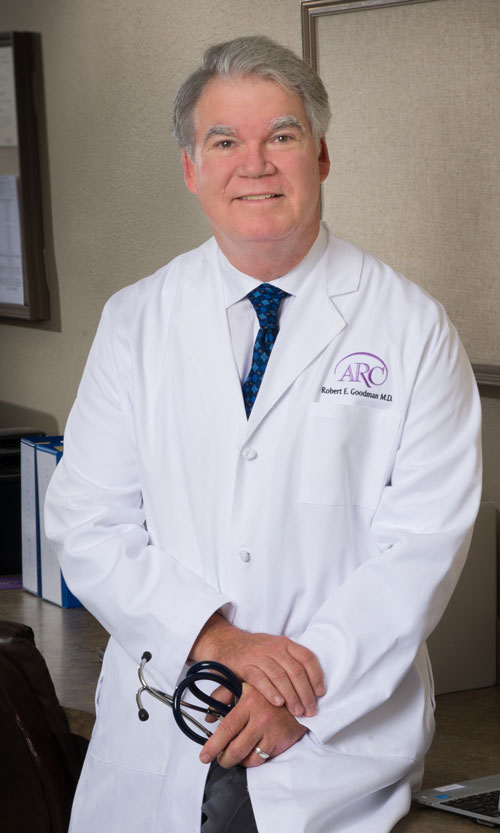What is a Rheumatologist?
|
Rheumatology is a subspecialty of Internal Medicine. A rheumatologist is an internist who has additional specialized training and experience in the diagnosis and treatment of arthritis and other diseases of the joints and bones. In addition to arthritis, rheumatologists treat certain autoimmune diseases, musculoskeletal pain, and osteoporosis. Rheumatologists typically work closely with primary care physicians to coordinate the best possible treatment for each patient.
Rheumatologists have particular skills in the evaluation of the over 100 forms of arthritis, and have special interest in rheumatoid arthritis, osteoarthritis, psoriatic arthritis, fibromyalgia, gout, pseudogout, systemic lupus erythematosus (SLE), osteoporosis, osteopenia, back pain, ankylosing spondylitis, carpal tunnel syndrome, polymyalgia rheumatica, polymyositis, bursitis, tendinitis, reactive arthritis, undifferentiated connective tissue disease, Paget’s disease, Raynaud's phenomenon, reflex sympathy dystrophy syndrome, Reiter’s syndrome, scleroderma, Sjogren's syndrome, antiphospholipid antibody syndrome, Still disease, dermatomyositis, vasculitis, sarcoidosis, osteomyelitis, relapsing polychondritis, Henoch- Schonlein purpura, serum sickness, Kawasaki disease, erythromelalgia, growing pains, iritis, reflex sympathetic dystrophy, and others. Classical adult rheumatology training includes four years of medical school, one year of internship in internal medicine, two years of internal medicine residency, and two years of rheumatology fellowship. There is a subspecialty board for rheumatology certification, offered by the American Board of Internal Medicine, which can provide board certification to approved rheumatologists. Robert E. Goodman, MD is Board Certified in Rheumatology and Board Certified in Internal Medicine, and has 34 years of specialized rheumatology experience. |




